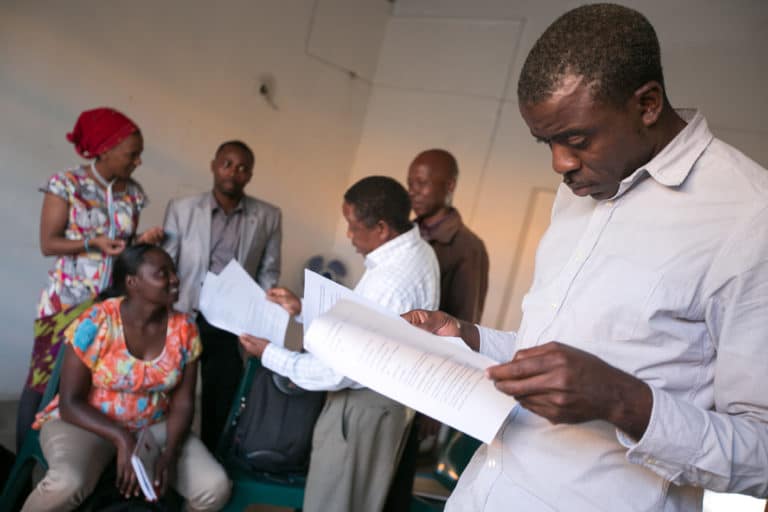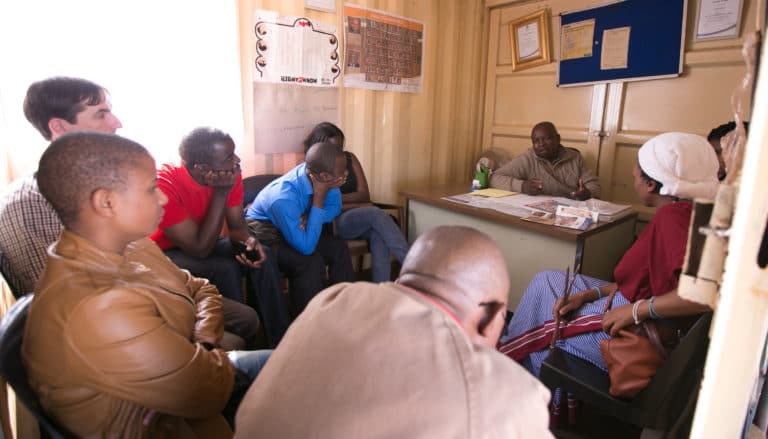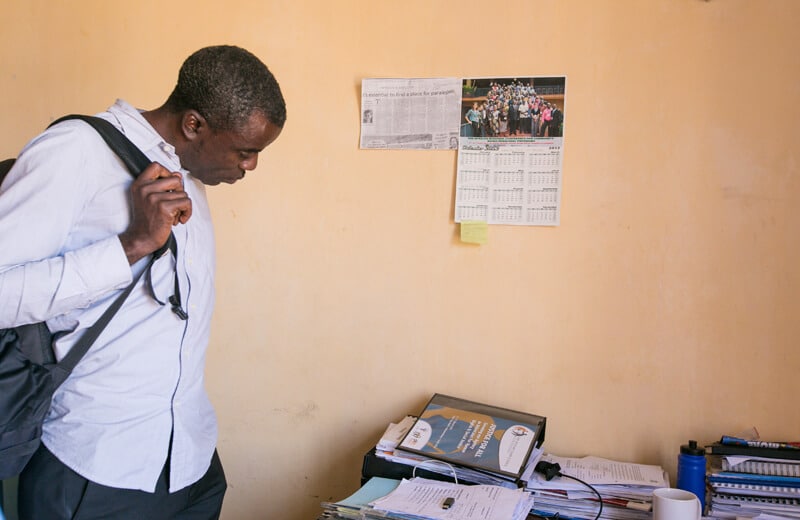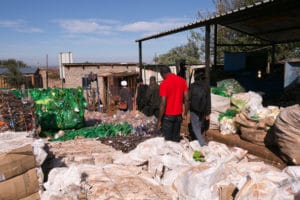Juves Tchiamala works for Lawyers of Hope Rwanda, empowering vulnerable individuals in court or through a network of paralegals he helps to train and coordinate. His organization was struggling with monitoring cases, communicating impact, securing financial sustainability, and recruiting and motivating community paralegals. So when Juves heard about the Global Legal Empowerment learning exchange, he quickly submitted his application.The exchange Juves went on was hosted by the National Alliance for the Development of Community Advice Offices (NADCAO), a veteran legal empowerment organization based in Johannesburg, South Africa. There Juves and other participants met with paralegals who run social enterprise businesses to support their work, legal aid organizations who have integrated case management with paralegal offices, and community advice offices in rural and urban areas who have found innovative ways of working with clients, paralegals and authorities alike.“During the exchange program, we visited a lot of places where we exchanged our respective experiences based on our paralegal work and our challenges brought from Rwanda, Kenya and Tanzania,” recalls Juves. “Later on, I became conscious that most of my challenges got answers.”
In the year since the exchange, Juves has been putting what he learned into action. To address his organization’s challenges with monitoring and evaluation, he has launched a training program for law students to support case data collection and client follow up and has been training a small group of paralegals to test a new case monitoring system before implementing it more broadly. His team has also worked hard to document a number of cases from start to finish, publishing these case studies and circulating them with partners, donors, and government agencies.

In addition to these improvements, Lawyers of Hope Rwanda has expanded the scale of its work. They are now working in a new district and started new recruitment drives in two existing ones. According to Juves, it was the learning exchange that taught him what characteristics to look for in a reliable paralegal.
His organization is also working with partners in the sector to get paralegals recognized under the law. This dedication to securing formal recognition has motivated the paralegals to be more active – as has a new focus on facilitating lapsed local court agreements. As Juves learned in the exchange program, such cases are often comparatively easy to resolve and are highly appreciated by the community. The paralegals, as a result, developed a sense of pride in their work, and pride can be a powerful motivator.



